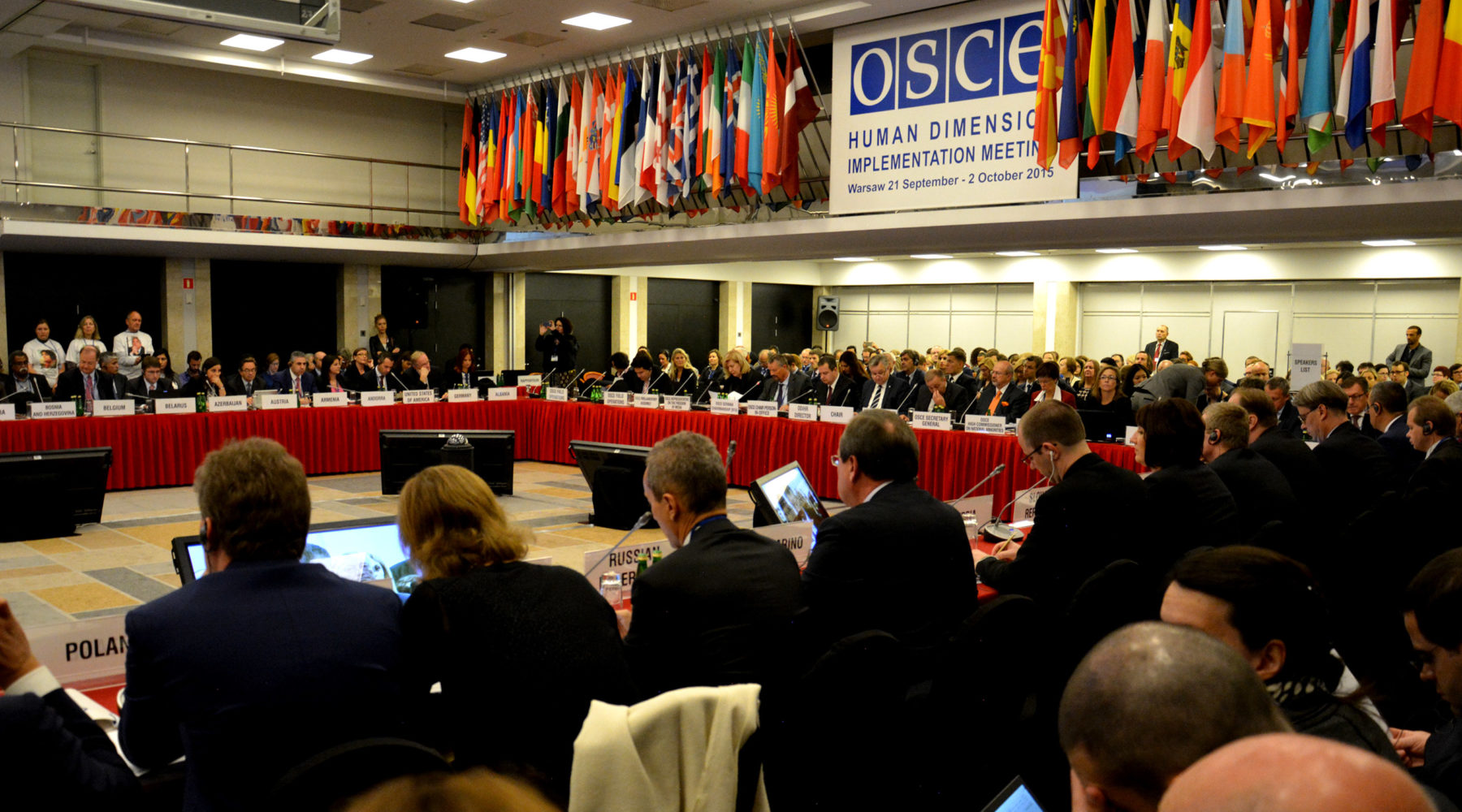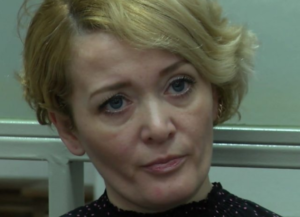


Peaceful protest and the rights to freedom of association and assembly in general are being eroded in many countries, Humanists International has highlighted.
While the failure of China to fully respect the right to peaceful pro-democracy protests in Hong Kong has been widely reported, the erosion of the same rights in a number of other countries is often overlooked.
In a statement to the annual Human Rights Conference of the Organisation for Security and Cooperation in Europe (OSCE), Humanists International has condemned the all-too common obstruction of those seeking to peacefully assemble or associate across the region.
Whilst attending the OSCE’s Human Dimension Implementation meeting (HDIM) meeting in Warsaw, Poland, Humanists International highlighted a number of illustrative cases:

Anastasia Shevchenko, believed to be the first person detained under Russia’s “undesirable organizations” law, which targets human rights groups
The statement concluded by pointing out that “freedom of peaceful assembly and association…is a fundamental good for society. It promotes the public discourse, diversity and progress so sorely needed in the region. And it is an essential tool in achieving change and representation in society.”
The Human Dimension Implementation Meeting (HDIM) is an annual two-week conference held in Warsaw every autumn and is attended by some 1,000 government representatives, international experts, non-governmental organizations, and human rights activists. Organized by the OSCE Office for Democratic Institutions and Human Rights (ODIHR), the meeting is considered Europe’s largest human rights conference.
The statement follows in full below:
Humanists International
Human Dimension Implementation Meeting, OSCE, Warsaw 2019
Working Session VI: Freedom of peaceful assembly and associationThe Copenhagen Document (1990) is clear: “Everyone will have the right of peaceful assembly and demonstration. Any restrictions [..] will be consistent with international standards”(§9.2). Yet across the OSCE region there are clear violations. Just a few examples:
In Kazakhstan, authorities routinely deny permits for peaceful protests against government policies and disrupt even single-person unauthorized protests, arbitrarily detaining organizers and participants.
In Hungary, a law on public assembly, introduced last year, gives police more discretion to ban or disband demonstrations.
Turkey has seen an increase in arbitrary bans on public assemblies. Last year, police detained students from leading universities for peaceful protests. A number of students were held in pretrial detention and many more prosecuted for crimes such as “spreading terrorist propaganda” and “insulting the president.”
The Copenhagen Document is clear: “The right of association will be guaranteed” (§9.3). Yet, again, there are clear violations by participating states.
In Turkmenistan, it is illegal for unregistered NGOs to operate, and strict regulations create severe challenges for groups to register. Civil society activists are threatened with reprisal.
In Russia, authorities smear independent NGOs, with a number of foreign NGOs banned for being “undesirable.” Earlier this year, Anastasia Shevchenko, coordinator for the pro-democracy NGO Open Russia, was put under house arrest for violating the “undesirable organizations” law.
NGOs working on issues related to asylum and migration, women’s rights, or LGBT rights in Poland report ongoing difficulties accessing previously available public funding and some reported being smeared in pro-government media.
The right to freedom of peaceful assembly and association is not only guaranteed under international law and via OSCE commitments but it is a fundamental good for society. It promotes the public discourse, diversity and progress so sorely needed in the region. And it is an essential tool in achieving change and representation in society. We urge all participating states to protect it accordingly.